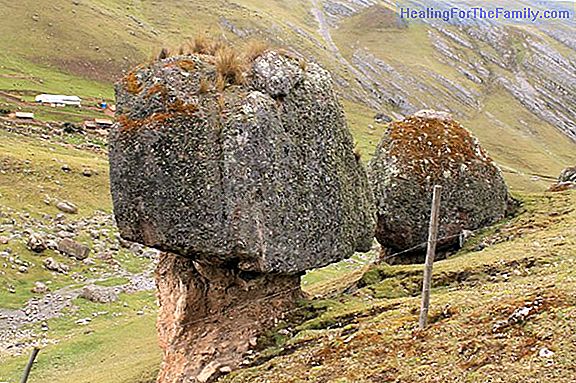When a father does not get involved in the education of the children
Not long ago we lived in a more traditional society where the affective bond of the mother in the upbringing and education of the children was emphasized more. The role of the father was limited to the search for economic security. Due to this, the figure of the father has often been left aside, cau
Not long ago we lived in a more traditional society where the affective bond of the mother in the upbringing and education of the children was emphasized more. The role of the father was limited to the search for economic security. Due to this, the figure of the father has often been left aside, causing negative consequences in the development of the child.
At present, the involvement of the father in the education of his children has grown since there has been an evolution in society from that time until today. Currently, both parents work and share responsibilities. But how does it affect the child that the father does not get involved in raising the children?
The implications of the father in the education of the children

The role of the father is fundamental in the education of the children, complementing the mother figure. Both figures are essential for the healthy development and personality formation of children.
The role played by both parents in the family has changed. Both share responsibilities, which allows the little ones to have a wider vision of the environment that surrounds them. Regarding the implications of the father figure in the education of their children:
- The father helps establish balance in the relationship of the children with the mother. There are studies that show that both figure interact in different ways with their children. This brings wealth of experiences and experiences to their children.
- Give love, mimes, etc. When the mother, for whatever reasons, can not.
- The father gives security. As a father transmit confidence and confidence so that the child gets the necessary emotional stability for the future. The old role of a distant and feared father is left aside and, now, it is transmitted with an attitude of resilience.
- The father assumes the daily responsibilities.
- The father's role is important to convey to his children how is the male role to develop their sexual identity.
What happens when the father is absent.
Absence, rejection or insufficient relationship with the father figure have negative consequences on the development of the children. In the infant stage:
- When the father does not respond to the son's attention calls, he will feel that it is not important for him and will cause a lack of security and a feeling of emptiness. This can be a problem for the development of your self-esteem.
- When the child is in the infant stage, the absence of the father can bring with it regressive behaviors in the child such as loss of control of sphincters, insomnia, fears, tantrums or stagnation of cognitive acquisitions. Además - In addition, at this stage children build an ideal father image in their mind that they will take as an example
to complete their personality. Therefore, it is important to appreciate that the absence of the father figure can create internal conflicts in the child. - If at this stage there is no paternal-filial relationship, the child can not discover the model of authority, expressed in the father in the form of service, help, self-confidence, knowing how to intervene properly in conflict situations . So the child will have difficulties to configure his masculine identity and to forge the mood of the future father. In the adolescent stage, this absence is lived intensely, presenting insecurity, loneliness, depression. What leads to school failure among other things.












